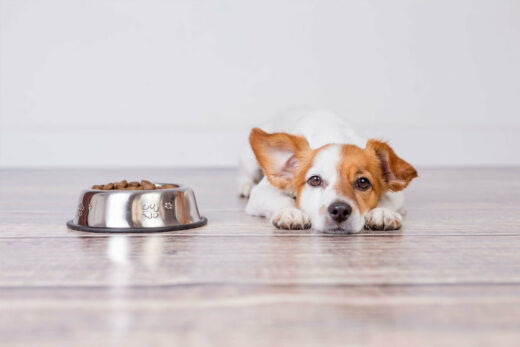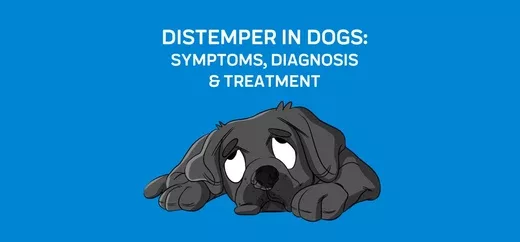Bringing home a new bundle of fur is an exciting time for pet owners. There is a lot to remember and keep track of when caring for a new puppy, including puppy-proofing your home, numerous veterinary visits, potty training, and socializing, to name a few. It doesn’t take long for a special bond to form with your new puppy, so it can be stressful when your four-legged family member becomes sick. Diarrhea and upset stomachs are not uncommon in puppies; in some cases, loose stool or diarrhea may be the only sign of a problem in a playful puppy. Understanding the possible causes and when to rush or not rush to the veterinarian can help decrease your stress when your puppy is experiencing a health issue.

Common Causes of Puppy Diarrhea
Pet parents can understandably become worried when a puppy shows signs of gastrointestinal (GI) distress. The underlying problem could range from a mild upset stomach to side effects of puppy medication to a fatal disease. Young puppies are prone to numerous diarrhea-causing illnesses because their immune systems are still developing. Common causes of diarrhea in puppies include:
- Dietary changes. Navigating puppyhood involves, among other things, finding the right food for your pup’s health. Many pet owners will experiment with new treats or diets during the first few months. Your puppy’s diarrhea may simply be a sign of food allergies. However, sudden diet changes can cause diarrhea or loose stools, especially in a puppy’s developing GI tract. Always ensure a slow transition over a few weeks when switching your dog’s diet, and consult your vet on the best options for your pup.
- Stress. Like humans, anxiety, stress, and fear can lead to GI inflammation, resulting in colitis and diarrhea. Traveling, vet visits, or leaving your pup while you are at work can cause anxiety in some dogs, leading to stress-induced diarrhea.
- Garbage, toxic foods, and foreign objects. Puppies explore new environments with their nose, mouth, and paws. Counter surfing and diving for table scraps may be a hobby for your pup, but this can lead to ingesting toxic foods or dangerous objects. Diarrhea is a common sign of pets who have ingested garbage or human food that might be too rich or fatty for their GI system.
- Intestinal parasites. Puppies are prone to intestinal parasites, likely contracted from their previous environment. Common GI parasites affecting puppies include roundworms, hookworms, whipworms, tapeworms, giardia, and coccidia. Parasites are not always visible in the stool. Signs of an infection may consist of a rounded belly, dull fur coat, weight loss, lethargy, and vomiting.
- Viruses. Unvaccinated or partially-vaccinated puppies are at risk for contracting contagious viral infections, which can be fatal in some cases. Diarrhea or bloody stool is the most common sign of parvovirus. Other diarrhea-causing viruses include distemper, coronavirus, and adenovirus (infectious hepatitis).
- Bacterial infections. A puppy’s developing immune system makes them more prone to bacterial infections, like clostridium, E.coli, and salmonella. Other signs, including bloody stool, fever, vomiting, and lethargy, often accompany these infections.

When to Go to the Veterinarian for Your Puppy’s Diarrhea
Always consult your veterinarian if you are worried about your pup’s health. Diarrhea or changes in your puppy’s poop are common symptoms of numerous diseases. Additionally, diarrhea may be the only sign of a serious problem during the early stages of potentially fatal diseases like parvovirus. Determining the severity of your puppy’s diarrhea depends on their vaccination status and the presence of other clinical signs.





